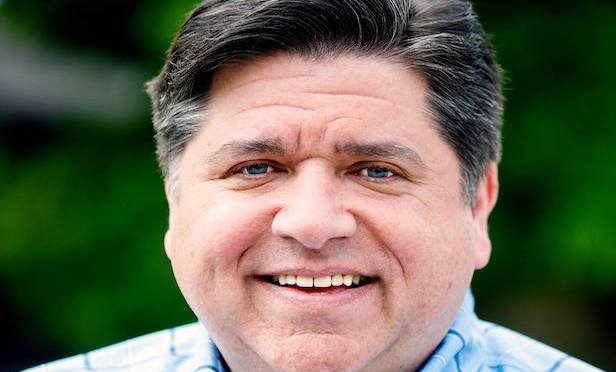CHICAGO—Illinois Gov. JB Pritzker has signed what some consider the most “equity-centric” law in the nation to legalize adult-use cannabis.
Surrounded by a bipartisan group of state lawmakers, the bill signed by the governor on Tuesday makes adult-use cannabis legal beginning on Jan. 1, 2020.
The bill signed into law (House Bill 1438) “promotes equity and invests in the communities that suffered through the war on drugs, serving as a model for the legalization and decriminalization of cannabis.”
The law will generate significant tax revenue for the state. The Illinois Department of Revenue projects that this industry will generate more than $57 million in tax revenue and licensing fees in FY20 and, in tax revenue alone, $140.5 million in FY21, $253.5 million in FY22, $323.5 million in FY23, and $375.5 million in FY24.
“As the first state in the nation to fully legalize adult-use cannabis through the legislative process, Illinois exemplifies the best of democracy: a bipartisan and deep commitment to better the lives of all of our people,” said Gov. Pritzker. “Legalizing adult-use cannabis brings an important and overdue change to our state, and it's the right thing to do. This legislation will clear the cannabis-related records of nonviolent offenders through an efficient combination of automatic expungement, gubernatorial pardon and individual court action.”
In terms of the economic and fiscal impact of the legislation, some of the main features when it goes into effect next year include:
• creating a $30-million low-interest loan program to defray the start-up costs associated with entering the licensed cannabis industry.
• establishes a “social equity applicant” status for licensing.
• designates 20% of the total points for qualifying applicants to obtain a license for a dispensary, cultivation center, infuser, craft grower or transporting organization.
• waives 50% of non-refundable license fees.
• allows 180 days from the license award date to identify a physical location for the dispensary, reducing up-front costs.
• limits ownership to three cultivation centers or craft grow facilities or 10 dispensaries.
• dedicates a portion of sales in early approval facilities to a cannabis business development fund.
The remaining state revenue will be allocated as follows after factoring in administrative costs: 35% for the General Revenue Fund, 25% for the Criminal Justice Information Projects Fund to support the R3 program, 20% for the Department of Human Services Community Services Fund to address substance abuse and prevention and mental health concerns, 10% for the Budget Stabilization Fund to pay the backlog of unpaid bills, 8% for the Local Government Distributive Fund to support crime prevention programs, training, and interdiction efforts, including detection, enforcement, and prevention efforts, relating to the illegal cannabis market and driving under the influence of cannabis, and 2% for the Drug Treatment Fund to fund public education campaign and to support data collection and analysis of the public health impacts of legalizing the recreational use of cannabis.
© Touchpoint Markets, All Rights Reserved. Request academic re-use from www.copyright.com. All other uses, submit a request to [email protected]. For more inforrmation visit Asset & Logo Licensing.








